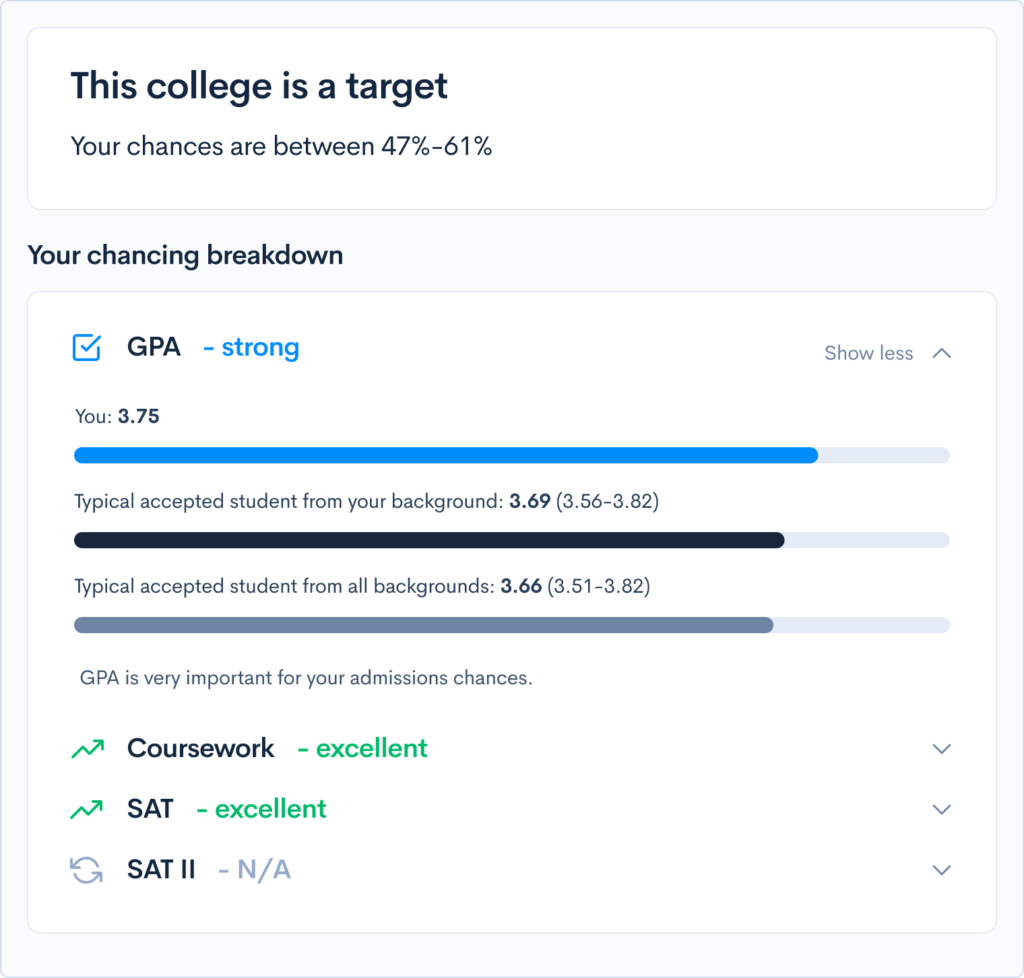Benefits of College: 10 Reasons to Go to College
What’s Covered:
It’s no secret the price of college is increasing exponentially. In 1980, the average cost of tuition, room and board, and other fees was $9,438. In 2020, that amount jumped to $35,720. This has led many people to question: do I really need to go to college?
This post will discuss the benefits of going to college, as well as reasons to consider waiting to go to college or pursuing alternative education.
10 Benefits of Going to College
1. Higher Earnings and Income Potential
Several studies have linked a college education with higher earnings over the course of your career, even if college itself is expensive. Jobs that require a degree have higher starting salaries and often lead to promotional opportunities, increasing earning potential even more. On average, a college graduate will earn $38,792 yearly, but an individual with a bachelor’s degree will earn $64,896.
2. Greater Financial Security
Not only does a college degree open doors to higher earnings and income potential, but your degree can also provide financial stability. One study conducted in the U.S. found that a bachelor’s degree increased lifetime income for men by over $900,000 and $630,000 for women. Additionally, jobs that require a college degree often provide employees with other financial benefits, such as pensions, healthcare benefits, and retirement savings accounts.
3. Increased Job Satisfaction
There are many benefits of college that are non-monetary. A study from Pew Research found that people with a bachelor’s degree tend to be more satisfied with their jobs. This is because jobs that require higher education tend to be linked with autonomy, variety, and status, which can lead to increased happiness at work.
4. Building Relationships
The skills you learn in college won’t just be academic in nature. College can also teach you the value of networking and relationship building. The connections you make in college with other students, faculty, and alumni can help you down the line as you apply for a job or graduate school. You’ll often need recommendation letters for applications. Knowing people with established careers in your field can be the gateway to securing a job. In fact, some experts estimate that 70-85% of jobs are found through networking. We recommend always checking out your school’s career center for tips.
5. Developing In-Demand Technical Skills
Some college classes emphasize technical skills which help students be successful in their first jobs. For example, a math class can teach you how to use statistical software or a communications class can teach you the best way to give an effective presentation. Learning how to develop apps, produce videos, and work with AI are other technical skills that can make you marketable during your job search. When you’re picking classes, be sure you consider courses that teach you technical skills for your desired future career.
6. Learning Soft Skills For On the Job
College coursework will teach you valuable skills that will prepare you for the everyday challenges on the job. Unlike technical skills that are easy to list on a resume, soft skills are picked up through coursework, group projects, and presentations. Skills like problem solving, communication, working in teams, and leadership are applicable and critical to succeed in whatever your future career will be.
7. Discover Your Interests
College is a time for personal and professional growth. It is not uncommon for students to pick up new academic interests in college that they would not have had otherwise. College is different from high school because you can choose many of the classes you want to take, and you aren’t required to take classes you’re not interested in. This flexibility allows you to discover your academic passions. Many students end up changing their majors in college as they realize that their interests have changed. In your future career, you are much more likely to succeed if you are working in a field you are passionate about. That makes this time for exploration very valuable.
8. Greater Personal Development
Going to college also impacts confidence and self-esteem. College graduates tend to have higher levels of self-esteem and feelings of achievement after completing college. These traits can have lasting effects on your life as they guide you at work and in life after college. Additionally, juggling various responsibilities in college such as studying, working, and participating in extracurricular activities can help you learn time management skills. You’ll also make life-long connections with your classmates that you’ll be thankful for later in life!
9. Gain Skills for Fast-Growing Occupations
The labor market is rapidly evolving which means that new jobs will soon be in demand. Colleges can prepare you for the specific skills that you will need in these jobs and provide the resources to find opportunities in new fields. Fields like education, health services, government, and financial activities already have more job openings than workers. In 2020, nearly 65% of jobs required a level of education beyond a high school degree. This number will only increase in the next 10 years.
10. Education is Correlated with Future Happiness
Research suggests that the more education you have, the happier you tend to be. A 2016 Pew survey found that adults with a bachelor’s degree or more education are twice as likely to say they are happy with their lives than people with less than a high school education. Having a college degree does not necessarily cause sources of happiness like better health outcomes, more stable marriages, and longer lives, but they certainly are correlated.

Reasons NOT to Go to College
So, what if you are still on the fence about going to college? Below are the reasons why you may want to delay going to college, or instead, you may consider pursuing alternative education.
1. You’re Not Academically Prepared
If you feel like you aren’t ready for the academic rigors of college, you may consider waiting to go to college. You could take summer classes to review material from high school, or you could consider taking community college classes to brush up on your knowledge before applying for a bachelor’s degree.
2. You Need to Work to Support Your Family
If you need to hold a job in order to support yourself and your family, that is a totally valid reason to not go to college, at least for the time being. College is a large financial investment and the time commitment makes it difficult to earn a living while being a full-time student. However, there are opportunities to earn your bachelor’s or associate’s degree part time, which you may consider.
3. It’s Too Expensive
College isn’t cheap, and unfortunately, the price of college is a barrier for many. If the upfront price of education is too steep, you may consider looking for a job directly out of high school. However, it must be noted that several colleges meet 100% of demonstrated need. Community colleges also provide quality education and give substantial financial aid for eligible students. QuestBridge also partners with top colleges to provide full-ride scholarships to low-income students.
4. You Want to Pursue a Technical Field
Perhaps you want to work in a field where a traditional college degree won’t help you pursue your career goals. If you want to work as an electrician, construction manager, mechanic, or as a landscaper, for example, you may want to consider going to trade school. Trade school is often much less expensive than college and shorter than traditional, four year degrees. As for pay, some technical degrees offer high salaries. For example, the median salary of an electrician is nearly $60,000.
What Are Your Chances of Acceptance?
No matter your academic situation, you should have a strategy to maximize your chances of getting into college. When you put together a list of schools you want to attend, looking at factors such as location, size, academic opportunities, and cost are all important. Then, finding schools with that criteria that also match your relevant qualifications is key to getting admitted.
One important aspect of your college search is compiling a balanced school list. When you start researching schools, be sure to look into each school’s application requirements and median test scores and GPA. From there, you can determine if the school might be a target for you, a reach school that may be harder to get into, or a safety school that you could easily be admitted to.
Are you curious to find out how your GPA, test scores, extracurricular activities, and essays will impact your admissions decisions? Check out our free admissions calculator which can help you determine schools that are a great match for you.


